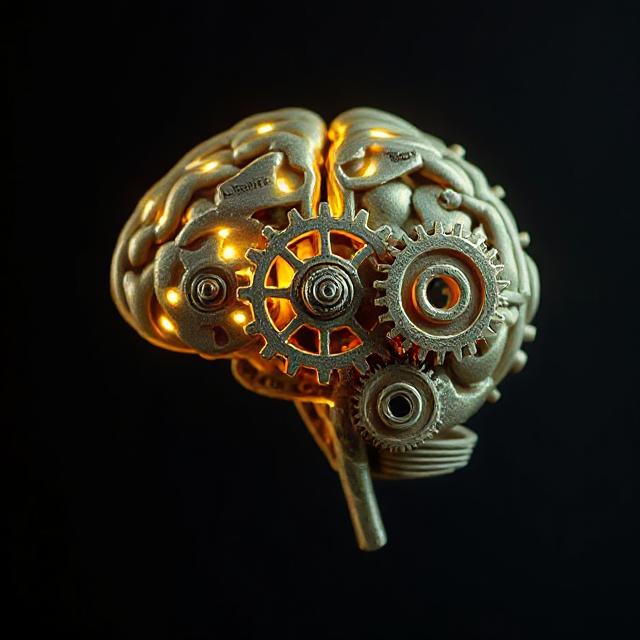
Table of Contents
Descartes to Kant: Rationalism and the Modern Turn in Philosophy
“Descartes to Kant” marks one of the most critical periods in the evolution of human thought—a philosophical revolution that reshaped our understanding of mind, matter, knowledge, and existence itself. The journey from René Descartes in the 17th century to Immanuel Kant in the 18th encapsulates the birth of modern rationalism and the gradual shift from medieval theological inquiry to a distinctly secular, scientific, and self-reflective form of philosophy.
Let’s trace the lineage of this intellectual transformation and explore why this era was so pivotal.
I. The Dawn of Doubt: Descartes and the Method of Rationalism
René Descartes (1596–1650) is often called the “father of modern philosophy.” Why? Because he broke decisively with the medieval scholastic tradition and laid the groundwork for a new rationalist method based on systematic doubt.
Descartes’ famous dictum—“Cogito, ergo sum” (I think, therefore I am)—wasn’t just a clever phrase. It was a declaration of epistemological independence. By doubting everything that could possibly be doubted, Descartes sought to find a foundation of certainty upon which all other knowledge could be built.
Key Contributions:
- Method of Doubt: Doubt as the starting point for philosophy.
- Dualism: Division of reality into mind (res cogitans) and body (res extensa).
- Innate Ideas: Belief that certain concepts, like God or mathematics, are inborn.
Descartes’ rationalism emphasized that truth could be discovered not through tradition or religious authority but by the careful use of reason.
II. Spinoza: Rational God, Rational Universe
Baruch Spinoza (1632–1677) took Descartes’ rationalism and gave it a bold, monistic spin. Rejecting the dualism between mind and body, Spinoza proposed that God and Nature were one and the same—a single, infinite substance expressing itself through infinite attributes.
Key Contributions:
- Substance Monism: All of reality is one substance—God or Nature.
- Determinism: Everything follows necessarily from the nature of God.
- Ethics: Written in a geometric, Euclidean style, his magnum opus Ethics explored how to achieve human freedom through rational understanding of the world.
Spinoza’s approach was radical, rational, and deeply ethical, presenting reason as the key to human flourishing.
III. Leibniz: Pre-Established Harmony and the Best of All Possible Worlds
Gottfried Wilhelm Leibniz (1646–1716) introduced a vision of the universe as composed of monads—simple substances that reflect the whole universe from their own perspective.
Key Concepts:
- Monads: Non-material points of spiritual energy, windowless and unique.
- Pre-Established Harmony: God has synchronized all monads to function harmoniously.
- Optimism: This is the best of all possible worlds, as chosen by a perfectly rational God.
Leibniz, like Descartes and Spinoza, believed that reason was the best tool for uncovering the truths of both the physical and metaphysical realms.
IV. Locke, Berkeley, and Hume: The Empiricist Challenge
Rationalism did not go unchallenged. In Britain, thinkers like John Locke, George Berkeley, and David Hume mounted a powerful critique from the opposite direction: empiricism, which held that all knowledge begins with experience.
- Locke rejected innate ideas and argued that the mind is a tabula rasa (blank slate).
- Berkeley asserted that to be is to be perceived, denying material substance.
- Hume attacked causality and the self, leaving knowledge on shaky foundations.
These thinkers posed serious problems for rationalism: If all knowledge comes from sensory input, then how can reason grasp things like mathematics, metaphysics, or God?
V. Immanuel Kant: The Great Synthesis
Immanuel Kant (1724–1804) entered the scene to resolve this conflict. Reading Hume, Kant said he was “awakened from his dogmatic slumber.” He agreed that experience is essential, but he also believed that reason structures experience through a priori concepts.
Key Concepts:
- Transcendental Idealism: We can never know things as they are in themselves (noumena), only as they appear to us (phenomena).
- Synthetic a priori judgments: Knowledge that is both informative and necessarily true—like mathematics and causality.
- Categories of Understanding: Space, time, and causality are not derived from experience but are how our minds organize it.
Kant synthesized rationalism and empiricism into a new critical philosophy—one that grounded science, ethics, and metaphysics in the human mind’s innate structures.
VI. Ethical Implications: From Rational Duty to Moral Autonomy
From Descartes to Kant, the concept of autonomy—both intellectual and moral—grew stronger. Kant’s categorical imperative demanded that individuals act only according to that maxim by which they can will it to be a universal law.
Ethics became less about divine command and more about rational consistency and human dignity. Reason wasn’t just a tool for science; it was the foundation of freedom.
VII. Legacy of the Rationalist Turn
The rationalist tradition from Descartes to Kant reoriented Western thought in several enduring ways:
- It centered the individual subject as the source of knowledge.
- It separated faith from reason, paving the way for secular inquiry.
- It laid the groundwork for modern science, constitutional government, and human rights.
Even today, debates over mind-body dualism, free will, the limits of reason, and moral law all trace their roots back to this intellectual lineage.
VIII. Conclusion: Descartes to Kant—A New Dawn of Thought
The journey from Descartes to Kant is not just a timeline; it is a turning point in the history of human self-understanding. These thinkers challenged inherited dogmas, questioned the reliability of the senses, and eventually uncovered a new way of looking at the world—not through revelation or tradition, but through the clear lens of reason itself.
In their wake, they left the blueprint for philosophy, science, and ethics as we know them. To understand this lineage is to understand the very birth of modernity.
